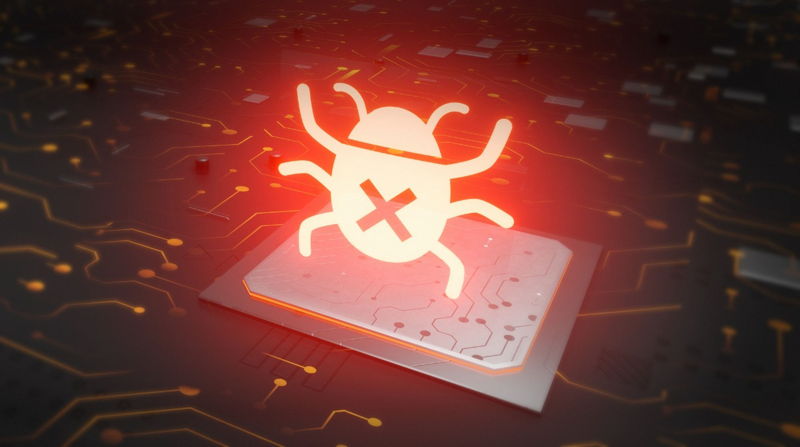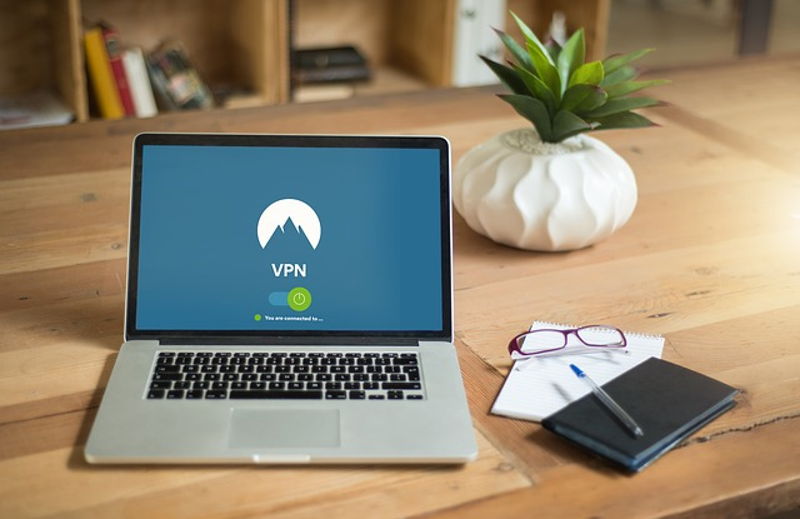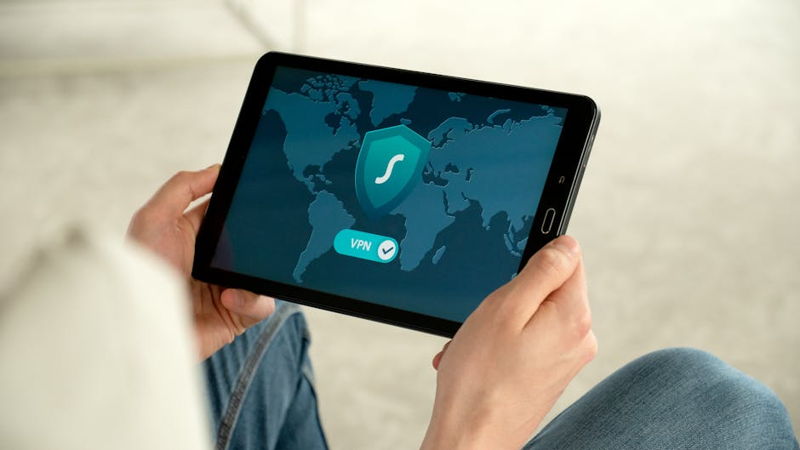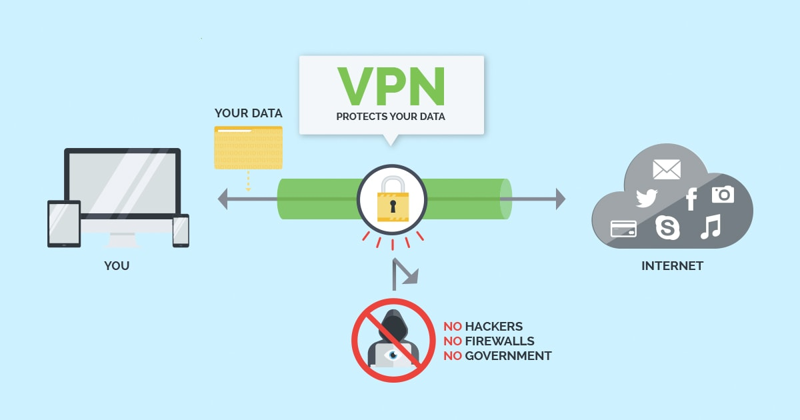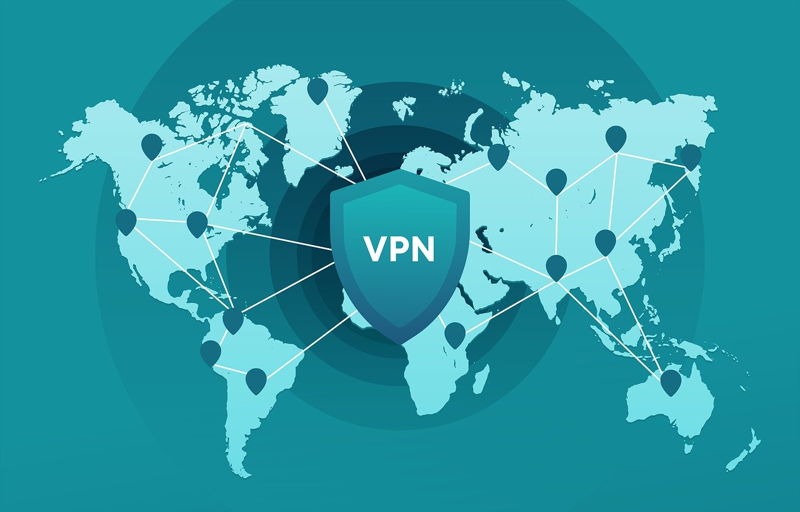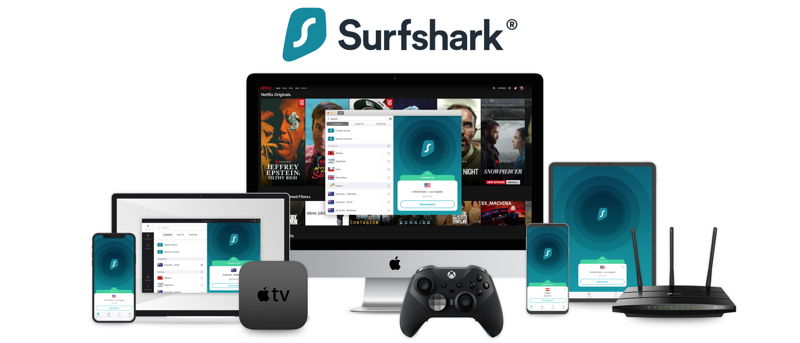Is a Free VPN Worth the Risk?
What are the hidden dangers behind free VPNs and do you actually know all the free VPN risks lurking out there? “Secure browsing” sounds simple, right? But can you honestly trust every service waving that promise? These days, folks lean on VPNs as their digital shield, so figuring out what’s really at stake with free ones matters more than ever. This guide unpacks the ups, downs, and sneaky pitfalls tied to free VPNs. You’ll get the details you need to make up your own mind about how you want to handle your online safety. Oh, and there’s more to it than you might expect.
Table of Contents
1. What Is a Free VPN and How Does It Work? 2. Why Free VPNs Are So Popular 3. Understanding Free VPN Risks 4. Can You Trust Free VPN Providers? 5. Real Life Examples of Free VPN Risks 6. How Free VPNs Monetize Your Data 7. Security Shortcomings of Free VPNs 8. Performance Issues With Free VPNs 9. Looking for privacy without the price tag? 10. Legal and Ethical Concerns 11. The Illusion of Anonymity 12. Comparing Free and Paid VPNs 13. Key Takeaways 14. Who Should Avoid Free VPNs 15. Are Any Free VPNs Truly Safe? 16. Safer Alternatives to Free VPNs 17. Conclusion: Weighing Free VPN Risks and Rewards 18. Frequently Asked Questions
What Is a Free VPN and How Does It Work?
Basic Definition of Free VPNs
A Virtual Private Network (VPN) scrambles your internet traffic, keeping your personal info under wraps. Now, a free VPN lets you use this shield without paying a dime. Imagine you’re on public Wi Fi at your favorite café free VPNs sound tempting for boosting your privacy. But there’s always another side: free VPNs often cut corners, and those trade offs can leave your privacy wide open. Would you risk it?
How Free VPNs Operate
Free VPNs plug you into their servers and encrypt your data (well, sort of). Their encryption isn’t always up to par, though. Some are built on weaker protocols, and that’s where trouble sneaks in. A lower grade VPN could leave you one step away from getting hacked. And once a breach happens, well, you can guess the rest identity theft, data spill, the works. Still, many people just click “connect” and hope for the best.
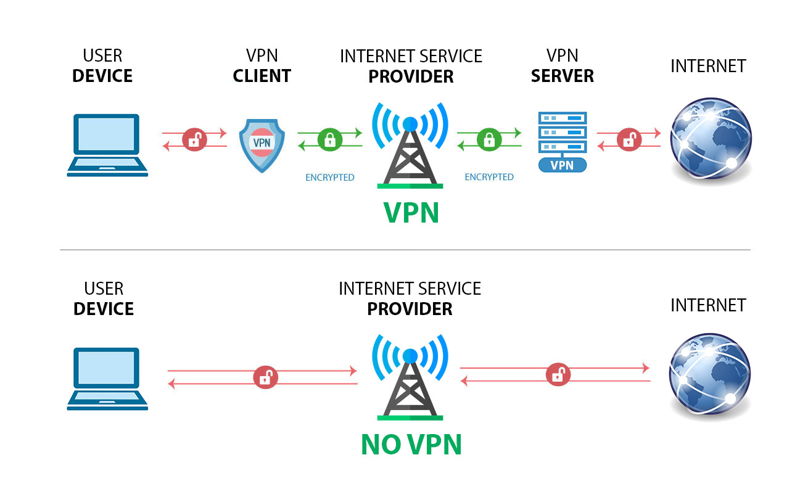
Differences From Paid VPNs
Paid VPNs like NordVPN and Surfshark VPN tend to pile on more perks think faster speeds, tougher security, and features free options just don’t match. One cybersecurity pro put it like this: “The jump from free to paid VPNs is huge, mostly for privacy and safety. ” These services usually offer more servers, better encryption, and actual support if you need help. Spotting these differences could save you a world of headache down the line.
Why Free VPNs Are So Popular
Cost Barriers to Premium Services
Money stands in the way for lots of folks most people either can’t or don’t want to fork over cash for a VPN. But price isn’t the only magnet. The whole idea of “free” and “unlimited” tugs at everyone’s curiosity, especially when it promises to unlock global content. Some see it as a shortcut to streaming or bypassing restrictions, never mind the fine print.
Appeal of Unlimited Access
Unlimited access? That’s the real bait. Free VPNs claim to open up the world: blocked sites, favorite streaming platforms, all a click away. Of course, there’s often a catch. You might find yourself throttled or locked out just when you need the connection most. The word “free” has a way of blurring judgment suddenly, risks feel less real. Weird, isn’t it?
Marketing Tactics Used
Free VPN companies pull out all the stops in their ads think flashy influencer endorsements or nonstop social media plugs. And let’s be honest, these campaigns gloss over the bad stuff and make everything look rosy. Falling for the hype is easy. Keep your guard up, read the fine print, and don’t let marketing do your decision making for you. It’s tricky territory.
Understanding Free VPN Risks
Privacy and Data Logging
Many free VPNs are hungry for your data browsing habits, personal info, the whole nine yards. Sometimes they turn around and sell it, totally undercutting the privacy you thought you had. Funny how a tool meant to protect your privacy can do just the opposite. For example, maybe you searched for vacation spots next thing you know, ads for luggage follow you everywhere. Coincidence?
Malware and Security Threats
Malware is another ugly hitch: some free VPNs are riddled with it, or even serve as the delivery truck for this junk. Security is usually an afterthought with these providers. If a malicious actor slips in, there’s often little standing in their way. The fallout can be huge identity theft, data loss, and sometimes you don’t even realize it until it’s too late.
Unreliable Encryption Methods
Encryption isn’t always what it should be. Free VPNs commonly lean on weak locks think of it as slapping a cheap padlock on a bank vault. Hackers? They love these weak points. Once your data’s out, there’s no pulling it back. And that’s just the start.
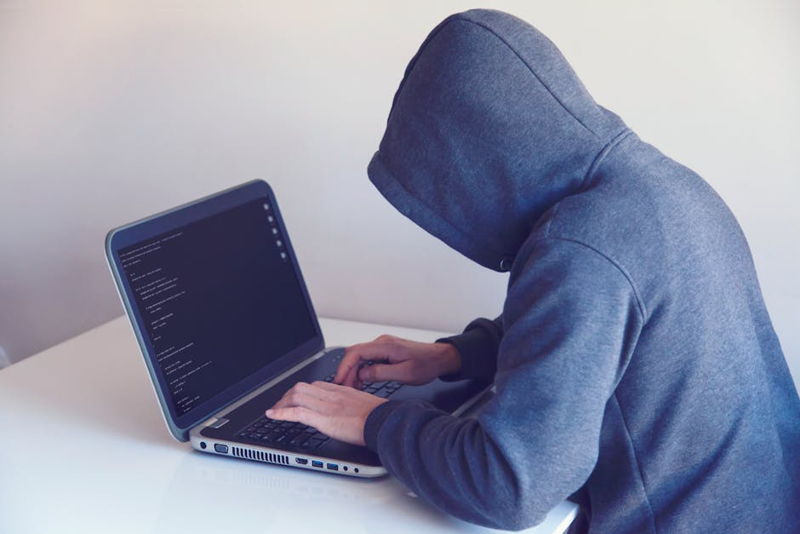
Can You Trust Free VPN Providers?
Transparency and Company Background
With free VPNs, you rarely get a clear picture of who’s actually behind the curtain. Sometimes, you can’t even tell where the company is based or what laws they answer to. It matters: if their headquarters are somewhere with loose privacy rules, your info might not be protected at all. Trying to pin down transparency in this space? Not so easy.
Hidden Ownership Concerns
Ownership can be downright murky. There have been cases where nobody really knew who controlled a free VPN, or who had access to the user data. Wild, right? If you can’t figure out who’s calling the shots, how do you hold anyone accountable if things go sideways? Bottom line shady ownership equals shaky trust.
Weak Privacy Policies
Privacy policies are often vague and sometimes intentionally so. You might read a dozen lines, but walk away not knowing what they actually do with your info. One advocate put it bluntly: “You need strong, clear policies. Otherwise, your data’s up for grabs. ” Skimming those terms could mean missing out on the loopholes that leave you exposed. Some folks just scroll to the end and click “agree” don’t be that person.
Real Life Examples of Free VPN Risks
Notorious Data Breaches
There’ve been some nasty breaches tied to free VPNs stories that almost read like digital horror tales. Security holes let hackers snatch sensitive info straight from VPN servers. One breach dumped passwords, emails, even payment details out into the wild. It’s more common than you’d think, and the damage can last long after you’ve deleted the app.
Suggested Reading: Is a Free VPN Safe Enough?
Cases of Misused User Data
Some free VPNs treat your data like a gold mine. They collect it sometimes way more than you realize and pawn it off to whoever’s willing to pay. The fallout? Targeted ads are the best case scenario. In the worst case, your details wind up fueling fraud or identity theft. Might sound dramatic, but it happens more than you’d expect.
User Experiences and Complaints
Plenty of users have shared their horror stories online VPNs that crawled at dial up speeds, dropped connections, or leaked info. Some wrestled with non existent support that never replied. Others realized their data was getting tracked or logged, despite what the app promised. Every complaint points to the same thing: free isn’t always a bargain.
How Free VPNs Monetize Your Data
Selling Browsing Habits
Your online moves are tracked, bundled, and auctioned off to advertisers by some free VPNs. For them, every click you make can be turned into a profit. The result: you lose anonymity, and suddenly your internet feels a lot less private. Who wants to be followed around by ads for cat food just because they Googled “kittens” once?
Invasive Advertising Practices
Ever notice a sudden rush of pop ups or weird ads after using a free VPN? That’s because these services often let advertisers plant cookies or even serve ads right through the app. Your browsing gets tracked across the web, even when you think you’re “hidden. ” Annoying and honestly, a little creepy.
Sharing Data With Third Parties
Some free VPNs pass your info to outside companies, data brokers, sometimes even government agencies. The consequences? They range from relentless spam to legal headaches you never saw coming. You’d be surprised who can get their hands on your data once it leaves your device. The chain is long sometimes endless.
Security Shortcomings of Free VPNs
Weak Encryption Standards
Encryption in free VPNs is often more wishful thinking than actual protection. Hackers can slip through weak ciphers like a hot knife through butter. If you’re not paying for the service, chances are you’re not getting anything close to bank level security. The technical stuff matters here, but sometimes it’s just about how quickly a bad actor can crack the code.
DNS and IP Leaks
Leaks happen a lot. Ever use a VPN and still see ads in your native language? That’s your DNS or IP address leaking, giving away your real location or identity. Tests exist, sure, but many free VPNs fail them. It’s a little unsettling, knowing that your supposed cloak is full of holes.
Lack of Regular Updates
Free VPNs tend to lag behind on updates. Outdated code and old security protocols stick around far too long, making it easy for attackers to sneak in. Fixes do come, but much too slowly. So if you’re looking for peace of mind, maybe look elsewhere.
Performance Issues With Free VPNs
Slow Connection Speeds
Speed is usually where free VPNs really let you down. With crowded servers and limited bandwidth, things can slow to a crawl, especially during peak hours. Streaming? Downloading? Sometimes, you’re just stuck waiting. Fast isn’t the word that comes to mind more like “barely moving. ”
Unreliable Server Availability
Finding a stable server can feel like playing whack a mole. Too many users, too few servers connections drop or lag, and you’re forced to hop around looking for one that works. Once, I tried three different servers before getting a connection that stayed up for more than five minutes. Frustrating doesn’t even cover it.
Looking for privacy without the price tag?
Looking for a VPN that won’t drain your wallet? Surfshark keeps you safe, lets you stream without limits, and protects your privacy—at a price you’ll love.
Frequent Disconnections
Some free VPNs disconnect without warning, leaving you exposed mid browse. Maybe their servers are overloaded or poorly maintained. Either way, it’s a headache if you’re relying on that connection for privacy or work. Not exactly what you signed up for.
Legal and Ethical Concerns
Jurisdiction and Compliance Issues
Where a VPN is based affects how it handles your info. Some are parked in countries where privacy laws are basically nonexistent. That means your data could be fair game for anyone with enough authority or cash. People rarely check the “where” before signing up, but it makes a world of difference.
Unclear User Agreements
User agreements can read like a maze full of legal jargon and vague promises. One legal expert put it simply: “If the terms aren’t clear, there’s room for trouble. ” Skipping over the fine print can leave you agreeing to things you’d never sign up for in plain English. And that’s a real risk.
Potential Legal Liabilities
Using a free VPN might land you in hot water, especially if you get caught up in copyright messes or other illegal online activities. Services with weak privacy stances make it worse, exposing your identity when it matters most. Picking carelessly could leave you tangled in lawsuits or worse. Not ideal, huh?
The Illusion of Anonymity
Tracking by Advertisers
Free VPNs sometimes become a back door for advertisers. Even with “anonymity” claims, tracking cookies and scripts can sneak in and map out your habits. You’re not invisible just wearing a flimsy disguise. The privacy you thought you had? More like wishful thinking.
Potential for Identity Exposure
Poor protocols and data leaks from free VPNs can lay your real identity bare. Sometimes it takes only a single slip up. Names, emails, occasionally even financial information nobody wants that out in the open. The risks are real, and not just for digital diehards.
False Sense of Security
Free VPNs often trick users into feeling untouchable, which can lead to reckless behavior online. Overconfidence is a quiet danger people start sharing more, ignoring warnings, thinking they’re safe behind a digital curtain. Turns out, the curtain’s see through. And most folks don’t realize it until the damage is done.

Comparing Free and Paid VPNs
Feature Set Differences
Paid VPNs simply pack more punch think extra security, more speed, add ons that actually work. One pro noted, “Paid and free VPNs are worlds apart, especially for privacy. ” If you care about keeping your data safe, those added extras start to matter. The list goes on, but you get the idea.
Suggested Reading: What’s the Difference Between Free and Paid VPNs?
Customer Support and Reliability
If something goes wrong with a paid VPN, you can usually reach a real person for help. Free VPNs? Good luck. Some don’t even offer an email address. Reliable support is worth its weight in gold, especially when your security or work is on the line.
Long Term Value Assessment
Over time, “saving” money with a free VPN can cost you more than you expect lost data, wasted hours, maybe worse. One user shared, “I switched to a paid VPN and couldn’t believe the boost in speed and peace of mind. ” What seemed like a freebie turns costly when you factor in the headaches and hazards.
Key Takeaways
- Free VPNs tend to limit features and introduce real privacy risks sometimes more than you bargained for.
- Paid VPNs usually offer faster, safer, and fuller services (and you actually get support when you need it).
- Spotting the gap between paid and free VPNs can help you make the right call for your online safety.
- Data isn’t safe with every free VPN many collect, use, or sell it without blinking.
- Privacy policies aren’t all created equal look for the ones that spell things out clearly.
Who Should Avoid Free VPNs
Journalists and Activists
If you’re a journalist or activist, using free VPNs is playing with fire. Your work could land you in real danger if your online activities get traced or exposed. Censorship, harassment, worse these aren’t just scare tactics. People’s lives and reputations are sometimes on the line.
Business Professionals
Anyone dealing with sensitive company info should steer clear of free VPNs. Data leaks can tank deals, expose secrets, or trigger lawsuits. I once heard of a small business losing key contracts after a free VPN exposed their negotiation emails. Not worth the risk for a few bucks saved.
Privacy Conscious Users
If privacy matters to you, don’t gamble on “free. ” Paid services may pinch your wallet, but they’re far likelier to keep your info safe. You may not think you’ve got anything worth stealing until you do. Just something to keep in mind.
Are Any Free VPNs Truly Safe?
Evaluation Criteria for Safety
To judge a free VPN’s safety, look at their encryption, logging rules, and how open they are about their operations. A security expert once said: “Finding a truly safe free VPN? Rare, but not impossible. Just make sure they value your privacy as much as you do. ” If they dodge the tough questions, trust your gut.
Examples of More Reputable Free VPNs
A handful of free VPNs try to do things right, offering basic protections and clear policies. They’re still limited, though, and risks never disappear completely. Even the best “safe” free VPNs can only promise so much read the fine print and keep your guard up. There’s always a catch.
Limitations Even Among Safer Choices
No matter how reputable, all free VPNs have downsides slower speed, fewer servers, maybe less protection. Their business models just don’t support the full package. Some users shrug it off, but the potential pitfalls are always lurking in the background.
Safer Alternatives to Free VPNs
Trial Periods on Paid VPNs
Lots of paid VPN providers let you try before you buy some with risk free trials, others with a no questions asked refund. One user told me, “I gave a paid VPN a spin and the difference was night and day. Faster, safer, and no weird ads. ” These test drives help you check things like speed and support before you commit.
Affordable VPN Options
You don’t have to break the bank for decent privacy. Plenty of paid VPNs run special deals or monthly plans that are less than lunch money. In the long haul, spending a little up front usually saves you headaches down the road. That’s just real talk.
Other Privacy Tools
Mix it up: browser add ons, encrypted chat apps, or even privacy focused browsers can fill in the gaps. A privacy advocate once said, “Don’t rely on just one tool layer up for the best protection. ” Think of it as a digital security blanket one tool alone won’t cover everything.
Conclusion: Weighing Free VPN Risks and Rewards
The risks that come with free VPNs aren’t just rumors they’re documented, and often costly in ways you might not expect. You could save a few bucks, sure, but what you risk losing privacy, speed, even your identity might not be worth the trade. Picking a VPN isn’t a one time thing: you have to stay sharp, keep checking, and be ready to adjust as new threats pop up. Paid might sting a little, but the peace of mind? Hard to put a price on that. Just something to chew on.
If you’re unsure which paid VPN to choose, try NordVPN or Surfshark VPN. Both are high-quality options at an affordable price.
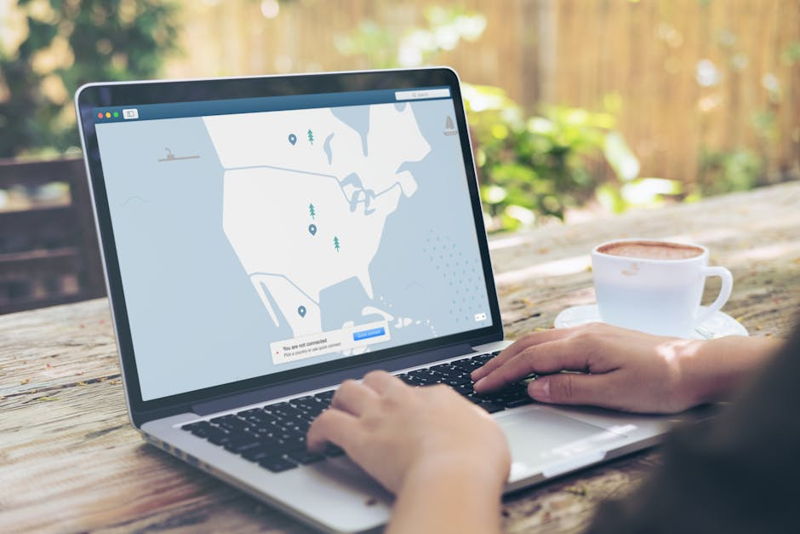
Suggested Reading: Why You Should Never Use a Free VPN
Frequently Asked Questions
What are the risks of using a free VPN?
Data leaks, malware, and seeing your info get sold to marketers or even shady actors these are just a few headaches you might run into with free VPNs. Sometimes, you won’t see the danger until it’s too late.
What is the difference between a free VPN and a paid VPN?
Paid VPNs bring more features, faster and steadier speeds, plus way stronger security. If privacy is your priority, the paid route is far safer no contest.
Can I trust free VPN providers?
With free VPNs, transparency is rare. Their data practices are often hard to pin down, so double check before you trust them with your browsing habits or personal info.
What are some safer alternatives to free VPNs?
Try a paid VPN with a trial or money back guarantee, or look at privacy tools like secure messaging apps and browser extensions. Mix and match don’t hedge all your bets on one free tool.
How can I protect myself when using a free VPN?
If you do use a free VPN, pick one with clear privacy policies and strong encryption. Always assume there are risks and keep an eye out for any strange activity on your accounts. Sometimes, caution is your best defense.

